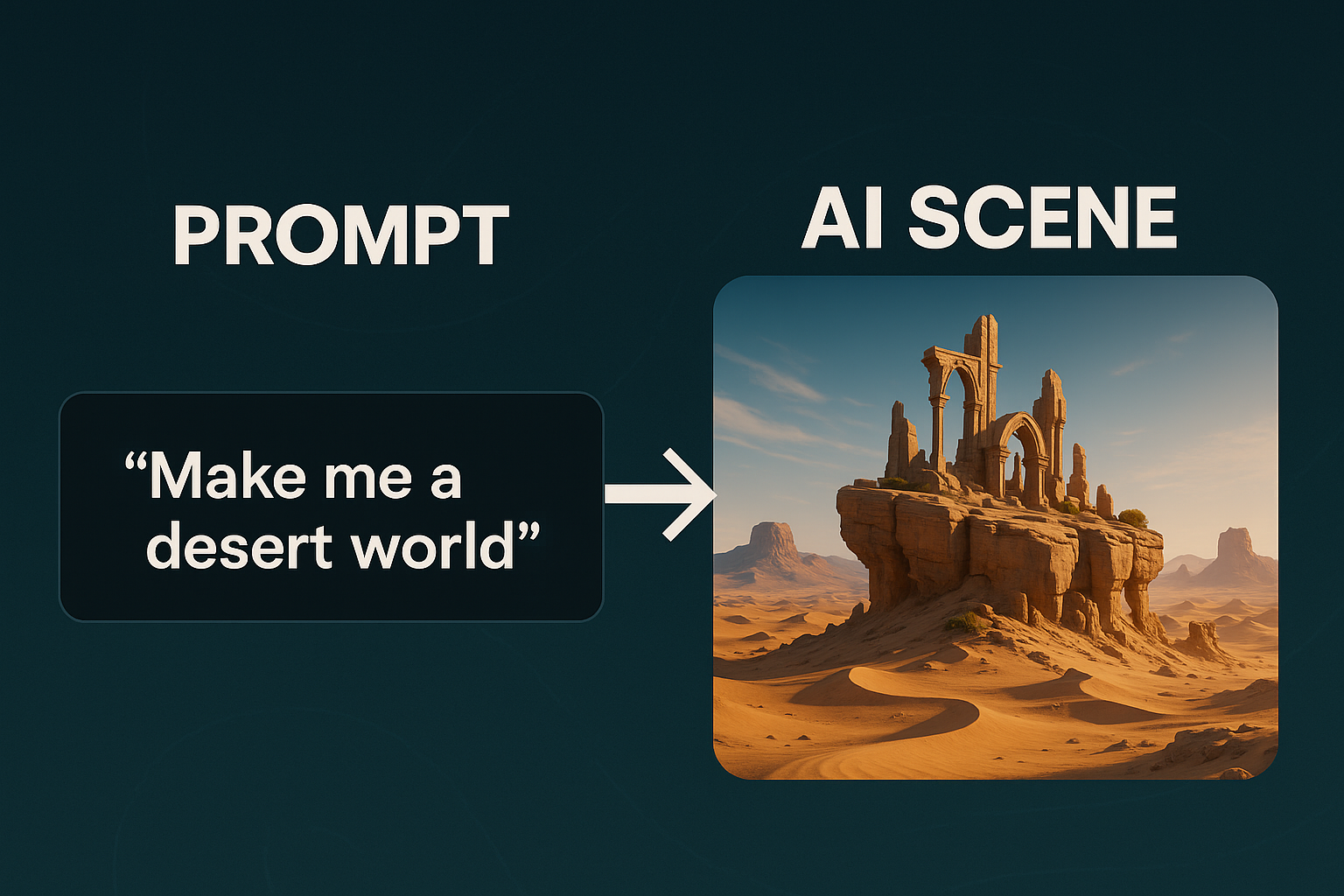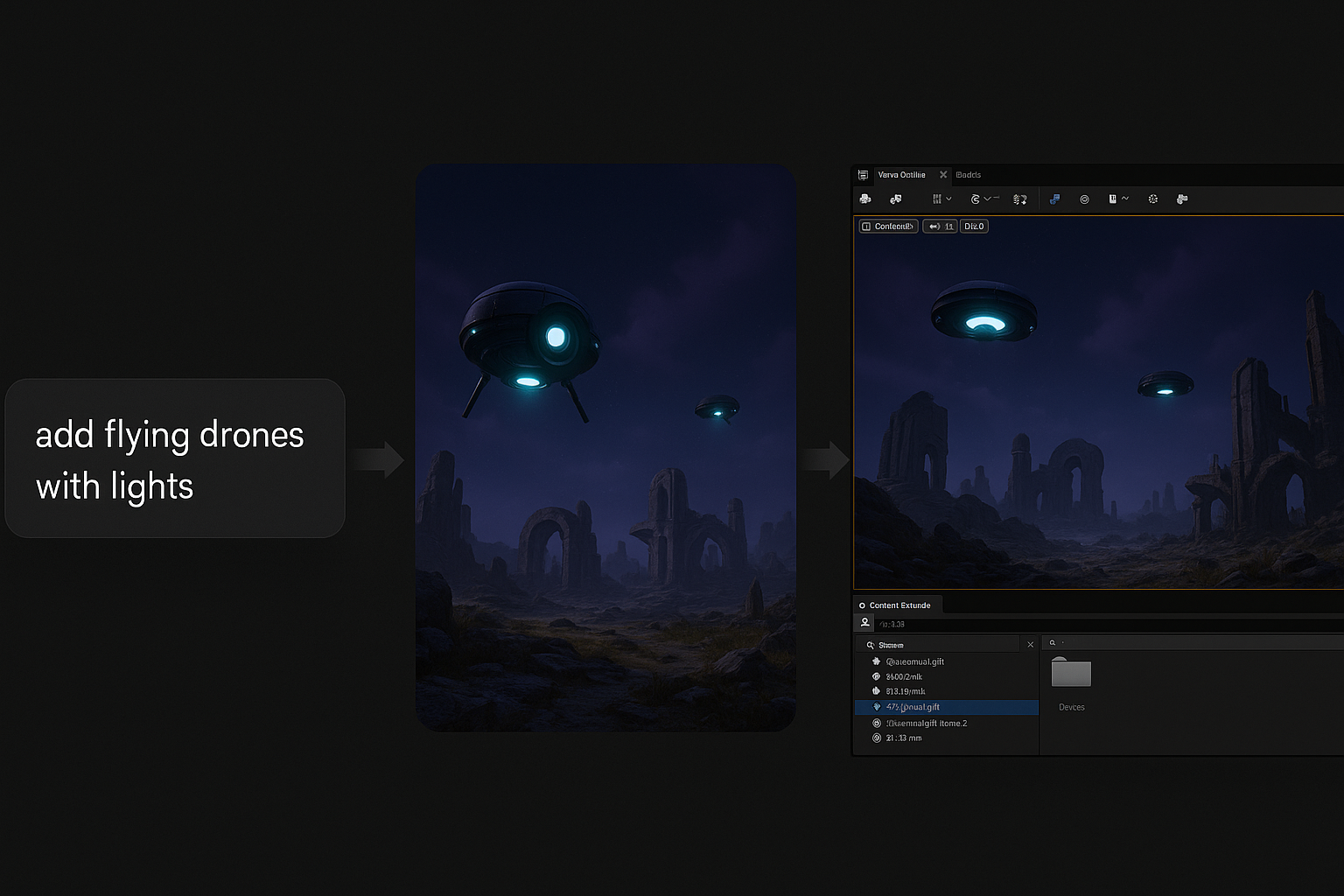Unreal Engine Is Creator Now. | 매거진에 참여하세요
Unreal Engine Is Creator Now.
#Unreal #WorldBuild #Generative #Prompt #Immersive #Story #GameDev #Metaverse #Interface
Unreal Engine Is No Longer Just a Tool . Worldbuilding No Longer Requires Hundreds of Artists
Once upon a time, building a game world meant recruiting an army of artists and designers. Terrain was sculpted manually. Textures were painted, skies were lit, and every single door on every building had to be placed by hand.
That era is over.
Today, Unreal Engine can generate entire virtual worlds from a single line of prompt.
The tool has evolved into a creator. This paradigm shift has a name:
World-as-a-Prompt.
Unreal Meets GPT: “Make me a desert world”
In 2025, Unreal Engine officially integrated with GPT-based LLMs.
With Unreal Editor for Fortnite (UEFN), Epic Games introduced a GPT-4o-powered code assistant. Now, creators can simply say:
“Create a floating island with alien ruins.”
“Add lava rivers and activate night mode.”
“Populate the area with flying drones and sound FX.”
And Unreal will convert these natural language commands into Blueprint code, updating the scene in real-time.
This is no longer just prototyping—it’s the birth of real-time world generation.

From Editor to World Generator
Let’s compare the evolution:
Unreal (Before) | Unreal + AI (Now) | |
|---|---|---|
Workflow | Manual modeling & scripting | Natural language-based generation |
Primary Audience | Game studios | Creators, writers, architects, filmmakers |
Use Cases | Game development | Film, metaverse, digital twins, simulations |
“Unreal is no longer an engine. It’s a World Builder.” — Epic Games Developer
From Games to Metaverse to Cinema
🎮 Games
With UEFN, over 70% of user-created maps in Fortnite are now AI-generated.
Players are building their own battle royales, racing tracks, and tower defense levels—all by typing.
🏙️ Metaverse
Corporate expos, virtual offices, fan meetups—Unreal powers it all.
AI automates avatars, interior layouts, and traffic flows.
🎬 Film & Cinematics
Used in productions like The Mandalorian and John Wick, Unreal enables real-time sets, AI-generated backgrounds,
and budget-conscious virtual cinematography.
Generative AI + Physics Engine = Interactive Worlds
Unreal Engine 5 already had advanced physical simulation.
Now, with GPT and vision models in the loop:
Open a virtual door, and wind flows in. Curtains flutter realistically.
Type “make this feel like a post-apocalyptic city”, and you'll get ruined buildings, corroded textures, and flickering neon.
The world is no longer a passive backdrop. It’s alive. Contextual. Responsive.

Anyone Can Be a World Creator Now
Unreal Engine isn’t reserved for professional game devs anymore.
With AI, anyone—authors, students, marketers, architects—can build their own world:
Writers render their stories’ settings in real-time
Marketers launch products in immersive 3D environments
Students recreate historical cities for experiential learning
Unreal + GPT isn’t just a tool to make games easier
It’s becoming an interface for translating imagination into interactive space.
The Blurring Line Between Reality and Virtuality
The fusion of generative graphics, AI interaction, and real-time physics creates something eerily real:
Unreal worlds connect seamlessly with VR
AI NPCs respond to your tone and emotions
The environment evolves dynamically as you explore
We’ve entered an era where reality is coded by prompts.
Unreal Is No Longer Just a Tool — It’s the Interface
If you can type, you can build a world.
AI understands your prompt. Unreal brings it to life in real-time 3D.
So, what do you want to see?
- Ancient ruins in the desert?
- A floating steampunk city?
- A fully playable post-apocalyptic simulator?
Just imagine it. And say it.
The world is yours to generate.






